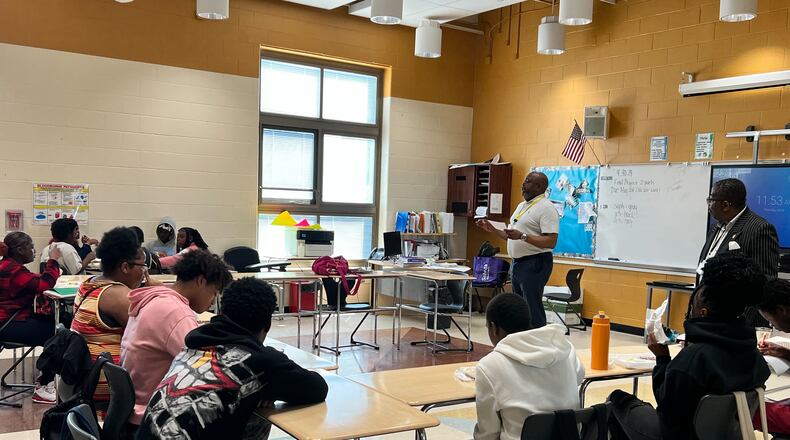“It’s also really important to the city and to the region that our young leaders are choosing to stay here and make their future here in the city,” said Stacy Schweikhart, CEO of Learn to Earn.
The kickoff event, which is open to the public, is set for at 4 p.m. Sept. 16 at the Dayton Metro Library downtown location. The session will be a discussion of the goals and plans for the project, including remarks from Learn to Earn and the mayor’s office. Listening sessions will be scheduled as well but will not all be open to the public.
In the last census, the city of Dayton shrunk the most of any city in the metro area. Additionally, the population of the Dayton region is expected to grow at a smaller rate than new jobs created, according to the Miami Valley Regional Planning Commission.
“Setting our youth up for productive and successful lives is the work of our entire community,” said Dayton Mayor Jeffrey Mims. “It’s key that we align our resources and center the voices of our young people in a shared plan for supporting their futures.”
The city is paying Learn to Earn a total of $150,000 over three years, with $50,000 per year, for this program. This year- the first year – focuses on listening sessions, while the next two years are implementation and accountability.
Schweikhart said often when people think about kids achieving great things, they put pressure on the schools to help their students more. But she pointed out kids only spend about 20% of their time in school. The remaining time outside of school is shaped by their neighborhoods and the community.
“How do the rest of us come around that remaining 80% of a student’s time to make sure that they have every access to opportunity to thrive?” Schweikhart said.
Learn to Earn surveyed teenagers in Dayton and found teens were worried about future careers and workforce, mental health, neighborhoods, peer pressure and leadership and development, said Erica Fields, senior director of strategic initiatives at Learn to Earn.
Fields said Learn to Earn will be working with multiple organizations in the area, like the Boys and Girls Club, the Victory Project, Omega CDC and more to hear more from students about what they mean by these topics. Fields said Learn to Earn has been cautious about defining any of those ideas, preferring to ask teenagers to define them.
Schweikhart said Learn to Earn is also using the sessions to figure out a roadmap for a city youth commission. The students will be offering suggestions for what that looks like, she said.
Fields said it is important to hear from as many teens as possible within the city, and not just the high-achieving students who are traditionally approached.
“We really wanted to make sure to reach everyone, everyone who might not have an opportunity to participate otherwise,” Fields said
About the Author

